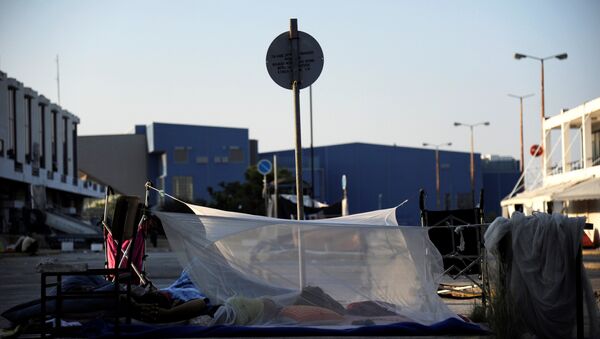A team of 30 Europol experts are being sent to refugee camps in Greece to look for anyone they suspect who may be about to carry out an act of terrorism on EU shores.
The anti-terrorism agency believes that there may be existing would-be terrorists among the crowds arriving from the Middle-East.
They believe that these potential terror suspects are hiding within the crowds of refugees staying in the camps, given that those people behind the November 2015 Paris attacks are known to have passed among the refugees and entered Greece.
30 anti-terror experts of #Europol will go to #Greece to single out potential jihadis among migrants who are stuck. https://t.co/ocELZaq27j
— Laurens Gaukema (@LaurensGaukema) 15 August 2016
"In a nutshell, Europol cross-checks data submitted by its partners against data held in specialist counterterrorist and other Europol databases," Europol spokesperson Alexandru Niculae said.
The decision to deploy a team was reached in mid-May. As Director of Europol Rob Wainwright said it was motivated by complex security challenges, including at the external border of the EU where high migratory pressures are exploited by criminal organizations.
Anti-terror experts from European police agency Europol will travel to Greece in an effort to track would-be jihadists amongst the migrants…
— SG TasteMakers (@sgtastemakers) 13 August 2016
"Although seen on a much less frequent scale suspected terrorists also use these channels to move in and out of the Europe. Combating these movements is already a top priority for the EU and the Member States involved. With this important decision taken today Europol will significantly reinforce its capacities to support these authorities in this critical work to safeguard our borders," Mr Wainwright said in a recent interview.
The number of migrant arrivals has dropped significantly this year, since the implementation of the March deal between Ankara and Brussels which sees migrants who have illegally arrived to the EU sent back to Turkey.
However, there have been reports that the numbers arriving in Greece could be rising again, but experts deny this is the case.
"We have a daily average of 80-100 people and that has roughly been the average since the beginning of the agreement," said Yiannis Mouzalas, Greek Migration Policy Minister.
Greece now houses 60,000 potential asylum seekers, who live in more than 30 temporary camps.



